Mexico’s Supreme Court shuts down federal ban on abortion despite it still being penalized in 20 states
Mexico’s Supreme Court on Wednesday lifted a federal ban on abortion, indicating the procedure can no longer be sanctioned because it is unconstitutional and violates women’s rights.
According to the unanimous decision of 11 judges, the Federal Public Health Service and all federal health agencies are required to provide access to abortion to anyone who requests it.
The ruling was one favored by the Information Group for Selected Reproduction, or GIRE as it is known by its Spanish initial, and other human rights groups.
“No woman or pregnant person, nor any health professional, will be subject to punishment for abortion,” the nonprofit organization said in a statement.
The decision comes two years after the Supreme Court ruled in a case involving the northeastern state of Coahuila, saying a woman cannot be jailed for having an abortion.
Hundreds of women protest with songs and posters during a protest in the state of Colima on September 28, 2019 to ask the Mexican government to decriminalize abortion. On Wednesday, the Supreme Court voted anonymously to lift a federal ban on abortion
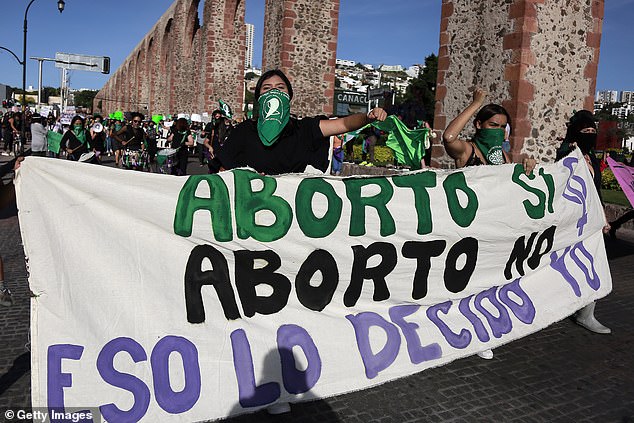
Protesters hold a banner that reads, “Abortion yes. Abortion No. That’s what I’ve decided’ during a march on September 28, 2020 in Queretaro, Mexico
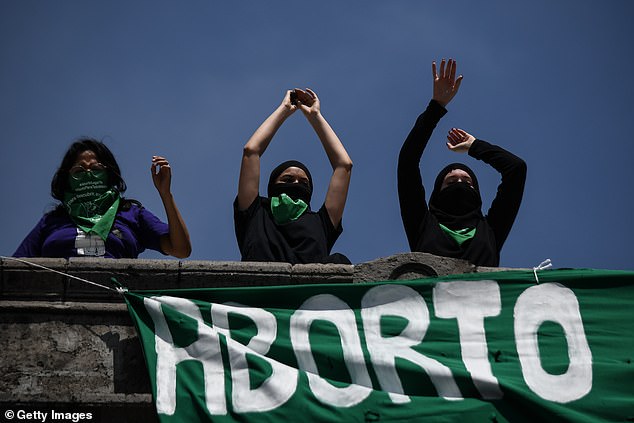
Members of the ‘Black Bloc’ raise a banner in favor of legal abortion during a demonstration for rights of choice on September 27, 2020 in Mexico City. On Wednesday, Mexico’s Supreme Court voted unanimously to lift the federal ban on the procedure
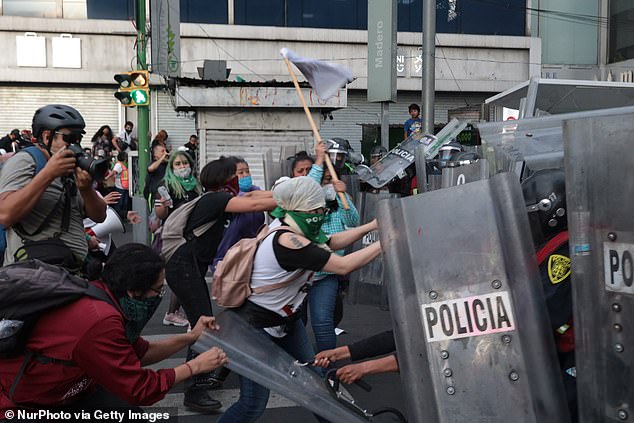
Women take part in a demonstration demanding the legalization of abortion as part of the International Day of Safe Abortion in Mexico City, Mexico, on September 28, 2020
Abortion was made illegal in Mexico in 1931 and allowed only if the pregnant mother’s life was in danger or if the pregnancy resulted from rape.
Women are allowed to have abortions during the first 12 weeks of pregnancy in the states of Oaxaca, Hidalgo, Veracruz, Coahuila, Colima, Sinaloa, Baja California, Baja California Sur Guerrero, Quintana Roo and Aguascalientes. The procedure is also allowed in the capital Mexico City.
Yet 20 of Mexico’s 32 states still criminalize it. While regional judges in those states will have to abide by the Supreme Court ruling on abortion, there is still a long way to go before all penalties can be abolished.
The historic ruling was celebrated on social media throughout Mexico.
“Today is a day of victory and justice for Mexican women!” The Mexican National Institute for Women writes this in a message on the social media platform X, formerly known as Twitter. The government organization called the decision a “big step” towards gender equality.
Senator Olga Sánchez Cordero, a former Supreme Court justice, also took issue with X, calling the ruling a step toward “a fairer society where the rights of all are respected.” She also called on the Mexican Congress to pass legislation in response.
Pro-life supporters rejected the historic ruling in a country where Roman Catholicism — which prohibits abortion — is practiced by at least 80 percent of the population.
Irma Barrientos, director of the Civil Association for the Rights of the Conceived, promised that abortion opponents will continue plans to block access.
“We’re not going to stop,” Barrientos said. Let’s not forget what happened in the United States. After 40 years, the Supreme Court has reversed its abortion decision, and we will not stop until Mexico guarantees the right to life from the moment of conception.”
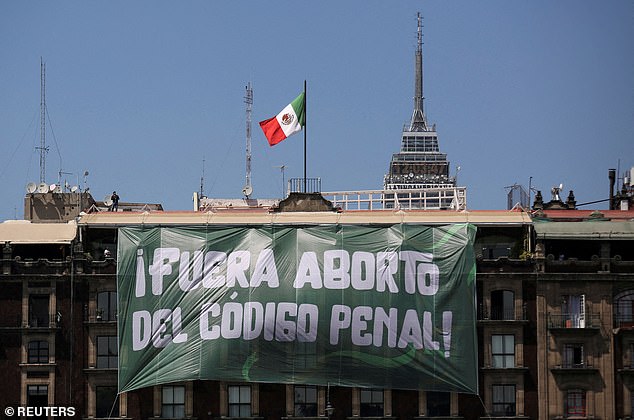
A banner reading “Abortion outside the penal code” hangs from a building during International Women’s Day in Mexico City’s Zocalo Square on March 8. Mexico’s Supreme Court on Wednesday voted unanimously to lift the federal ban on the procedure.
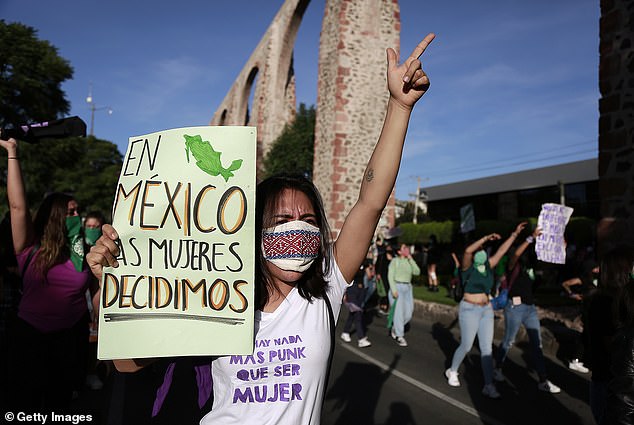
A woman holds up a sign that reads, “In Mexico, we women decide” during a rally for the decriminalization of abortion on the International Day of Safe Abortion on September 28, 2020 in Querétaro, Mexico
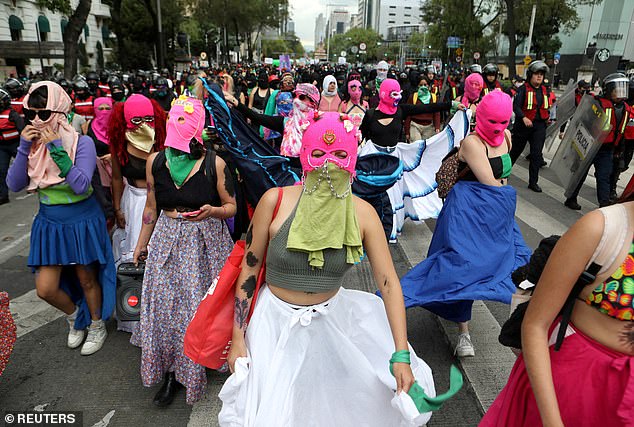
Women take part in a protest in support of safe and legal access to abortion to mark the International Day of Safe Abortion in Mexico City on September 28, 2022
Mexico City presidential hopeful Claudia Sheinbaum, who is running for the ruling Morena party, and opposition candidate Xóchitl Gálvez have not yet commented on the decision.
Mexico becomes the latest country in Latin America to take steps toward legalizing abortion.
Argentina legalized abortion in 2020, and Colombia in 2022.
According to the ruling, women in every Mexican state still do not have immediate access to abortions Fernanda Díaz de León, vice president and legal expert for women’s rights group IPAS.
It forces federal agencies to provide care to patients. That will likely have a cascade of effects.
Díaz de León said lifting the federal ban removes another excuse used by health care providers to refuse abortions in states where the procedure is no longer a crime.
It also allows women in formal employment who are part of the Social Security system and government employees to apply for the procedure at federal agencies in states where abortion is still a criminal offense, she said.
Díaz de León and officials from other feminist organizations are concerned that women, especially in more conservative areas, may still be denied abortion.
“It’s a very important step,” Díaz de León said. But ‘we have to wait and see how this will be applied and how far it will go.’
